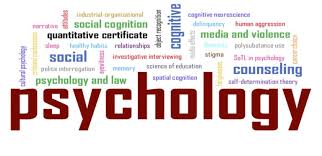Substance Use Disorder – Psychology Notes – For W.B.C.S. Examination.
পদার্থের ব্যবহার ব্যাধি – মনোবিজ্ঞান নোট – WBCS পরীক্ষা।
Substance use disorder occurs when a person’s use of alcohol or another substance (drug) leads to health issues or problems at work, school, or home.Continue Reading Substance Use Disorder – Psychology Notes – For W.B.C.S. Examination.
This disorder is also called substance abuse.
Causes
The exact cause of substance use disorder is not known. A person’s genes, the action of the drug, peer pressure, emotional distress, anxiety, depression, and environmental stress can all be factors.
Many who develop a substance use problem have depression, attention deficit disorder, post-traumatic stress disorder, or another mental problem. A stressful or chaotic lifestyle and low self-esteem are also common.
Children who grow up seeing their parents using drugs may have a high risk of developing substance use problem later in life for both environmental and genetic reasons.
Commonly used substances include:
- Opiates and other narcotics are powerful painkillers that can cause drowsiness, and sometimes intense feelings of well-being, elation, happiness, excitement, and joy. These include heroin, opium, codeine, and narcotic pain medicines that may be prescribed by a doctor or bought illegally.
- Stimulants are drugs that stimulate the brain and nervous system. They include cocaine and amphetamines, such as drugs used to treat ADHD (methylphenidate, or Ritalin). A person can start needing higher amounts of these drugs over time to feel the same effect.
- Depressants cause drowsiness and reduce anxiety. They include alcohol, barbiturates, benzodiazepines (Valium, Ativan, Xanax), chloral hydrate, and paraldehyde. Using these substances can lead to addiction.
- LSD, mescaline, psilocybin (“mushrooms”), and phencyclidine (PCP, or “angel dust”) can cause a person to see things that are not there (hallucinations) and can lead to psychological addiction.
- Marijuana (cannabis, or hashish).
There are several stages of drug use that may lead to addiction. Young people seem to move more quickly through the stages than do adults. Stages are:
- Experimental use — Typically involves peers, done for recreational use; the user may enjoy defying parents or other authority figures.
- Regular use — The user misses more and more school or work; worries about losing drug source; uses drugs to “fix” negative feelings; begins to stay away from friends and family; may change friends to those who are regular users; shows increased tolerance and ability to “handle” the drug.
- Problem or risky use — The user loses any motivation; does not care about school and work; has obvious behavior changes; thinking about drug use is more important than all other interests, including relationships; the user becomes secretive; may begin dealing drugs to help support habit; use of other, harder drugs may increase; legal problems may increase.
- Addiction — Cannot face daily life without drugs; denies problem; physical condition gets worse; loss of “control” over use; may become suicidal; financial and legal problems get worse; may have broken ties with family members or friends.
Please subscribe here to get all future updates on this post/page/category/website


 Toll Free 1800 572 9282
Toll Free 1800 572 9282  mailus@wbcsmadeeasy.in
mailus@wbcsmadeeasy.in



















































































































